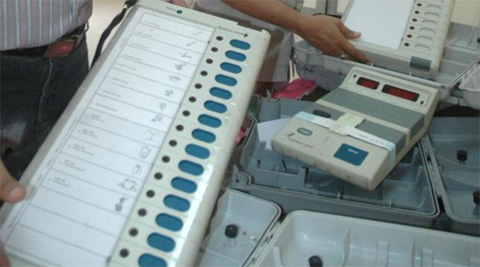The 16th Lok Sabha polls, one of the largest democratic elections in
the world, are in full swing. When millions of Indians vote in the
coming days, their ink-stained fingers marking another important moment
in our democracy, we need to ask whether all citizens have been able to
participate in these elections.


We need to consider alternatives such as the option of casting votes through mobiles and the provision of transportation.
******************************************************
Electoral process must be completely accessible for persons with disabilities.
******************************************************
Voters with disabilities have been an invisible minority to the Election Commission, political parties and the public in general. In 2004, the Supreme Court, in Disabled Rights Group vs The Chief Election Commissioner and Anr, laid down specific directions for the EC to implement at the time of voting. These directions were basic — ramps at all voting sites, tactile and Braille buttons on EVMs and allowing voters to take companions for assistance when they cast their ballot. The EC wasted no time in sending these directions to all its state election commissioners, but the actual level of accessibility and voting in those elections did not dramatically improve.
Now, 10 years later, we are at the same crossroads. In a recent audit of polling sites in Bangalore, it was found that most of the 7,700 sites were not accessible for voters with physical and locomotor disabilities. If we want to take voting rights seriously and ensure that our Constitution guarantees this right for every single person, we cannot ignore voters with disabilities. I make three arguments here.
First, electoral participation for voters with disabilities is not only about voting. Free and fair electoral participation means access to electoral awareness programmes and campaigns of the candidates and political parties, making campaign materials and speeches accessible. The websites of the EC, political parties and candidates should also be accessible. The SC has held that the right to know the background of a candidate is a fundamental right of a voter, so that she can make a rational decision while exercising the statutory right to vote. Thus, electors with disabilities have a fundamental right to get information about the backgrounds of candidates and parties in a format that is accessible. Unless such materials are available, a person will not be able to exercise her right to vote. The right to vote also begins with being able to register as a voter. The low number of voter registrations among people with disabilities is because most do not know how to get themselves registered as voters, do not get information about it, and voter registration sites are not physically accessible.
Second, the actual process of voting must be made smoother. The EC’s measures to enable voting have been limited to building ramps at polling sites. These are important, and it is evident that even this simple measure is not fully complied with. However, we need to move beyond these basic measures and consider alternatives such as the option of casting votes through mobiles for those with severe disabilities or in care homes, posting disabled election officers at each polling station and the provision of transportation for voters who require assistance in travelling to voting sites.
The most problematic measure taken by the EC is to permit assistance by allowing a companion during the voting process. This is based on the outdated Conduct of Elections Rules, 1961, which permits “a companion to accompany a blind/ infirm elector to assist him/ her to cast the vote”. The presence of another person in the voting booth, even if it is a friend or family member, opens the door to questions of influence, intimidation and coercion. The right to vote includes the right to vote independently and in secrecy. Allowing disabled voters to take in companions, ostensibly to assist them, takes away this basic right. Instead, the EC needs to make the voting process fully accessible so that assistance of a companion person is not required.
Finally, there is a need to develop election monitoring methods in
order to collect data, surveys and studies to understand the involvement
of persons with disabilities across the nation. This should include
pre-election, election-day and post-election observation.
It is not too late to implement some of these measures for election
day. For millions of our voters, getting to the voting booth is a
mountainous struggle and the act of voting is ridden with barriers, both
physical and attitudinal. Let us use these elections to remove some of
these barriers.
The writer is with the Centre for Law and Policy Research, Bangalore
Email Id : express@expressindia.com
Source : The Indian Express , 14th April 2014

No comments:
Post a Comment